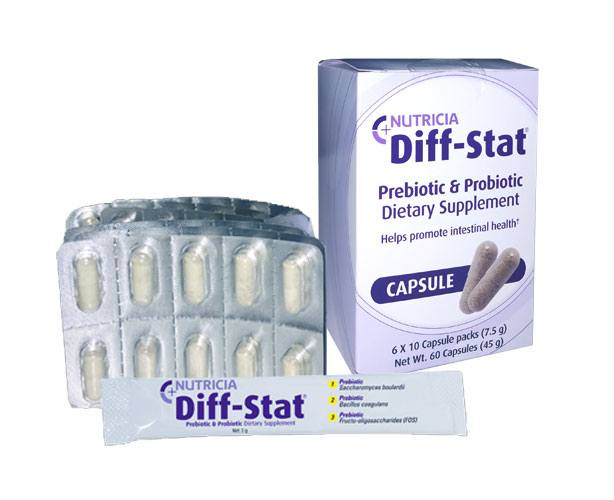Please choose a body region on the right for you to pin point the problem area of your body.

Shop by Condition

Shop by Brand
by Daniel Dunleavy
Surgery can be one of the most difficult ordeals for a person to ever go through. Three years ago, my father-in-law was having heart complications and checked into the hospital. The prognosis was he had a heart attack and needed to have triple bypass surgery. While recovering, he contracted a disease of the colon named C-diff. None of us knew what C-diff was at the time, but later found out that it is a huge epidemic in hospitals. Because of the disease, he had to have his colon removed and live with a colostomy bag for the rest of his life. Needless to say, it was a harrowing experience for not only him, but for our entire family.
Clostridium difficile (C-diff) is a spore-forming bacterium that releases toxins in the intestine causing mucosal inflammation, intestinal damage, and diarrhea. It is one of the most common nosocomial infections, with incidence and severity on the rise, reaching epidemic levels in the US. This is possibly due to the increased use of broad-spectrum antibiotics and the emergence of a C-diff strain that has increased virulence.
Long-term care (LTC) residents are at especially high risk because of extended length of stay, advanced age, frequent hospitalizations, and the widespread use of antibiotics (1). From 50% to 75% of residents in LTC are exposed to 1 or more courses of antibiotics over a 12-month period (2-6). Up to 33% of LTC residents treated with an antibiotic acquire C-diff, with a 44% rate of recurrence within 1-2 months (7, 8). Furthermore, up to 65% of residents who have suffered 2 or more episodes will have another recurrence (8). In the last decade, there has been an increase of antibiotic-associated diarrhea (AAD) of 500%. C-diff accounts for 15% to 25% of all episodes of AAD (9). Even when an outbreak is not occurring, the prevalence of C-diff colonization in LTC ranges up to 20%, compared with less than 3% in healthy adults (10-12).
Thankfully he is now back to full health, but when my father-in-law contracted C-diff on top of what had just happened, we were overwhelmed with thinking what other measures could have been taken to prevent this from happening. C-diff is so severe that some patients have passed away from it. There is a new product that is clinically proven to prevent C-diff and AAD in hospital residents.
Medical Nutrition, a manufacturer of nutrition-medicine products for the nutritionally at risk who are under medical supervision, has developed the product Diff-Stat™ to combat C-diff and AAD. Diff-Stat™ is a unique formula that contains three clinically proven ingredients to help combat the effects of antibiotics on intestinal microbiota. It includes two proven probiotics that are heat and acid resistant and one prebiotic, together creating a synbiotic formulation that promotes intestinal health and strengthens immunity. Diff-Stat™ is available in Pineapple/Orange flavored Chewable Tablets (30 tablets/bottle, 6 bottles/case) and Unflavored 2 gram Powder Paks.
In a recent survey, 97% of Residents taking Diff-Stat™ while on Antibiotics did not develop AAD & 100% did not develop C-diff. The objective of the survey was to assess the efficacy of a synbiotic chewable tablet (Diff-Stat) in preventing AAD & C-diff in residents on antibiotic therapy. Subjects on antibiotic therapy were given 1 chewable tablet bid within 3 days of starting antibiotics for the duration of antibiotic therapy and continued for 2 weeks post therapy. Clinicians completed a questionnaire evaluating the product. The survey provides support on the potential efficacy of Diff-Stat in helping to prevent AAD and C-diff in residents taking antibiotics, and demonstrates acceptance, tolerability, and ease of administration.
For more information, clinical trials, and to order Diff-Stat, click here .
Get $10 off your next order when you sign up to receive our email newsletter.*
Simply enter your email address below!
*Minimum order value of $100. Valid email address to qualify.








